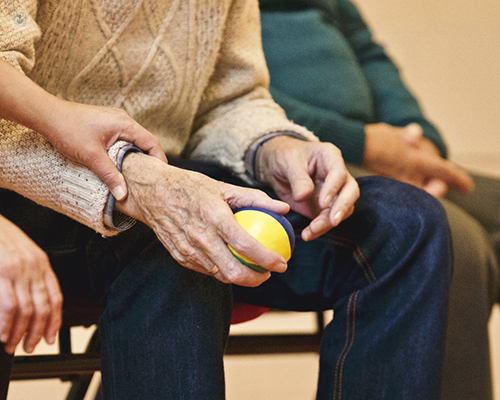Age spots (Liver spots)
Dr Tatyana Lapa-Enright - Aesthetic medicine
Created on: 10-27-2022
Updated on: 11-21-2023
Edited by: Conor Dunworth
What are age spots?
Age spots, also known as liver spots, are brown or black, flat spots or blotches on the skin that are very common in people over the age of 50. They can vary in size and sometimes form patches of darker skin. They can sometimes appear on younger people who get a lot of sun exposure. Despite commonly being known as liver spots, they have no relation to the liver.
They often appear on the face or hands, parts of the body that have been most exposed to the sun. They are especially common in people with lighter skin, or people who have frequently been sunburnt or exposed to intense sunlight.

What causes age spots?
Age spots are usually caused by exposure to sunlight or other types of UV rays. This is due to the ultraviolet light causing the pigment cells in the skin to become overactive, increasing the production of the natural pigment that gives skin its colour: melanin.
Over our lifetimes, as we are continuously exposed to this UV light, age spots begin to appear on our skin.
Are age spots dangerous?
No, true age spots are not considered dangerous. However, it is important to get any changes in the pigmentation of your skin looked at by a specialist, as cancerous melanoma can often be mistaken for age spots. If your age spots change colour or become darker, you should urgently see a doctor.

How can I prevent age spots?
There are several measures you can take to help prevent age spots. These include:
Using sunscreen: Age spots can be prevented by the consistent use of sunscreen when going outside. An SPF of at least 30 is recommended. The sunscreen should be reapplied every two hours, or more frequently if you are swimming or sweating heavily.
Covering your skin: Age spots can also be prevented by covering the most exposed parts of your skin when you go out in the sun. For example, a broad-rimmed hat to protect your face and neck, and clothes that fully cover your arms and legs.
Avoiding the sun at midday: Age spots can also be prevented by avoiding going out between 10 a.m. and 2 p.m. This is when the sun’s rays are at their most intense.
When should I see a doctor about my age spots?
Age spots are not something you should normally worry about. However, there are several different signs that your age spots may be something more sinister. You should see a skin specialist if your age spots:
- have started bleeding
- have an irregular border
- have increased in size
- have become much darker
Can age spots become cancerous?
Age spots themselves cannot become cancerous. However, sometimes the early stages of melanoma can look like age spots. This is why you must see a doctor if any of your age spots have significantly changed colour, shape, or size, as mentioned above.

How are age spots treated?
Age spots do not require treatment for any medical reason. However, sometimes people may want to have their age spots lightened due to cosmetic reasons.
There are several treatments available that can help reduce the appearance of age spots. These include:
- Topicals: Many over-the-counter creams claim to be able to make age spots fade.
- Chemical peels: This is an effective procedure that uses a chemical treatment to remove the outer layer of the skin, causing the age spots to fade.
- Cryotherapy: age spots can also fade thanks to cryotherapy treatments. These work by damaging the melanin-producing cells.
- Laser treatment: Laser can also damage the melanin-producing cells, causing the age spots to fade. Different laser treatments can also remove the top layer of the skin, similar to chemical peels.
- Dermabrasion: This is a treatment that uses a device to scrub the skin in different sessions over a period of weeks to months. Although this treatment takes a long time, studies have shown it to be very effective in the removal of age spots.
Are age spot treatments dangerous?
There are some age spot treatments that you should avoid. If you want to use topicals to fade your age spots, always avoid creams that contain mercury. These can lead to kidney and nerve damage.
